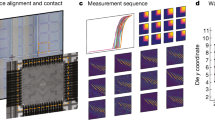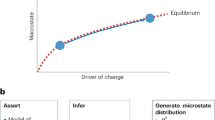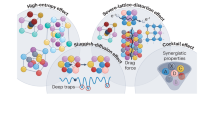Abstract
EXPERIMENTS recently carried out in this laboratory have shown that it is practicable to heat the wires of a thermocouple by the passage of an electric current and at the same time to record the temperature of the junction by means of the thermo-E.M.F. A high-frequency current is used in order that the concomitant voltage (order 10 volts) may be separated from the thermo-E.M.F. (order 0.001 volts) by means of inductance-capacitance filters. The apparatus can be used for measuring the thermal constants of poor conductors placed in contact with the couple wires.
This is a preview of subscription content, access via your institution
Access options
Subscribe to this journal
Receive 51 print issues and online access
$199.00 per year
only $3.90 per issue
Buy this article
- Purchase on Springer Link
- Instant access to full article PDF
Prices may be subject to local taxes which are calculated during checkout
Similar content being viewed by others
References
Hill, R. A. W., Sutton, L. E., Temple, R. B., and White, A., Research, 3, 569 (1950).
Author information
Authors and Affiliations
Rights and permissions
About this article
Cite this article
HILL, R. Thermal Measurements on Small Transient Systems. Nature 170, 29–30 (1952). https://doi.org/10.1038/170029b0
Issue Date:
DOI: https://doi.org/10.1038/170029b0
Comments
By submitting a comment you agree to abide by our Terms and Community Guidelines. If you find something abusive or that does not comply with our terms or guidelines please flag it as inappropriate.



